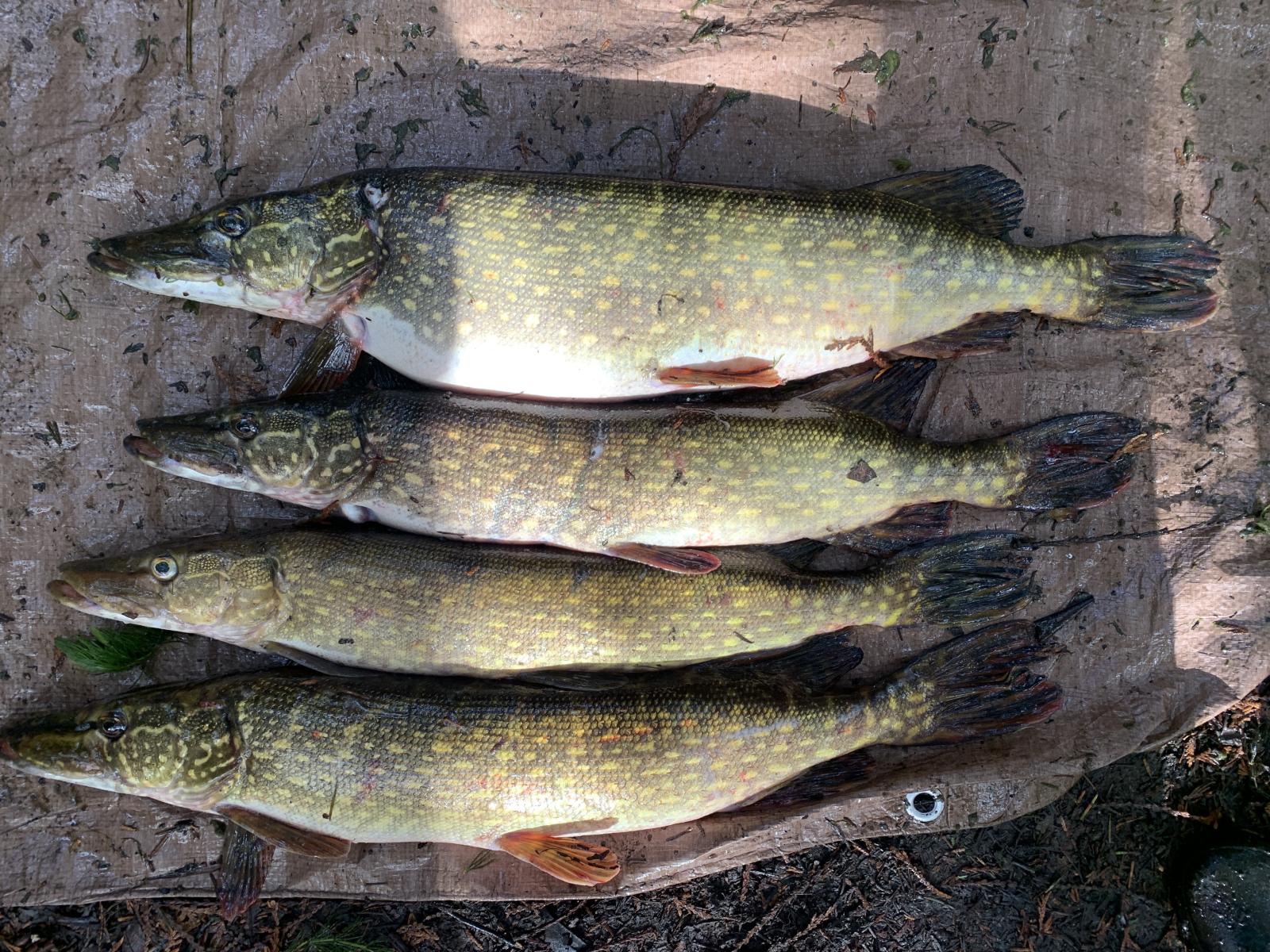News release
ais@dfw.wa.gov, 1-888-WDFW-AIS
Media contact: Staci Lehman, 509-710-4511
SPOKANE – The Washington Department of Fish and Wildlife (WDFW) has released a draft Interagency Northern Pike Rapid Response Plan that guides coordination and resources for species management, including preventing the spread of northern pike to new areas in Washington and developing long-term management plans for northern pike. The draft plan is undergoing a State Environmental Policy Act (SEPA) review. As part of that process, WDFW is asking members of the public for input.
“This plan is important to conservation in our state as it maps out the response of WDFW and coordinating partners to a number of situations that could arise with the spread of northern pike,” said Justin Bush, aquatic invasive species policy coordinator with WDFW. “It will help to speed our response when timing is critical as partnering agencies and groups will already know their role and be prepared to respond.”
The northern pike (Esox Lucius) is a non-native fish classified as a prohibited aquatic invasive species (AIS) in Washington. It has already spread to several water bodies within the state. Illegal stocking in the 1950s in Montana rivers and in the 1970s in the Coeur d’Alene river system led to establishment of northern pike in the upper Columbia River Basin. Since then, the species has steadily expanded downstream to include the Pend Oreille River, Spokane River, and the Columbia River upstream of Grand Coulee Dam. Northern pike have also been introduced in Lake Washington in King County and one was found as recently as last week in a pond on San Juan Island.
Northern pike can live over 20 years, can grow to more than 45 pounds, produce a large number of young, and can consume substantial quantities of native and Endangered Species Act (ESA)-listed salmonids that are particularly vulnerable to predation.
“Given their population dynamics and physiology, it is likely that northern pike will eventually expand into waters throughout the entire state,” said Chris Donley, WDFW Eastern Region (Region 1) Fish Program manager. “Preventative work done now will help to minimize the environmental, economic, and cultural resource impacts of northern pike later.”
WDFW contracted with Four Peaks Environmental Science and Data Solutions to develop the Interagency Northern Pike Rapid Response Plan. It is divided into three parts: 1) Prevention and Early Detection 2) Rapid Response Activities, and 3) Extended Response Activities. Partners in the development of the plan include the Washington Invasive Species Council, Washington State Department of Ecology, Washington State Department of Agriculture, and Washington State Department of Natural Resources. The Columbia River Inter-Tribal Fish Commission (CRITFC), Upper Columbia United Tribes (UCUT), and the Northwest Indian Fisheries Commission (NWIFC) were also involved.
“Partnering with other groups and governments to fight the spread of northern pike will allows us to be more efficient and make more progress using fewer resources than if each agency worked individually,” said Chad Jackson, WDFW North Central Region (Region 2) Fish Program manager.
Public comments can be submitted online at SEPA DNS 24-009 Interagency Northern Pike Rapid Response Plan - PublicInput or by emailing to NPikePlan@PublicInput.com. Comments can also be mailed to Lisa Wood, SEPA/NEPA Coordinator, WDFW Habitat Program, Protection Division, P.O. Box 43200, Olympia, WA 98504. All comments, included mailed ones, must be received by 5 p.m. on Tuesday, Mar. 19, 2024, to be considered.
The Washington Department of Fish and Wildlife works to preserve, protect and perpetuate fish, wildlife and ecosystems while providing sustainable fish and wildlife recreational and commercial opportunities.
